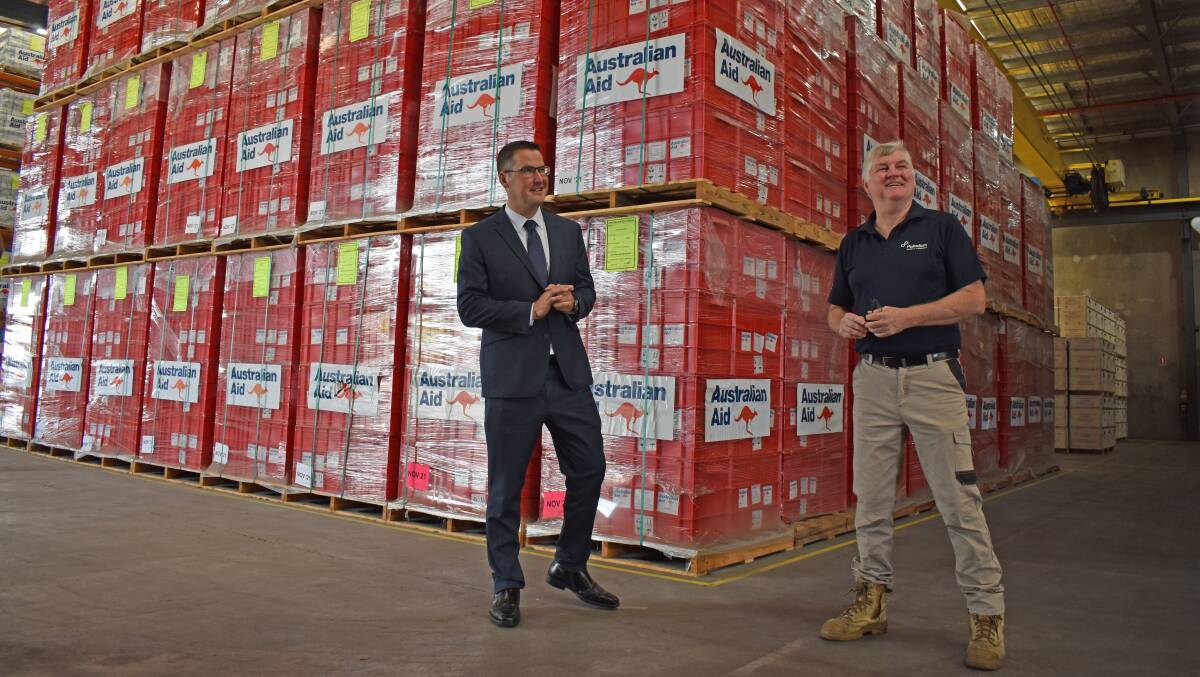
Tiny Pacific countries won't be left behind in the race for COVID-19 vaccines, Australia's new minister for the Pacific has pledged, as fears rise around the world access to vaccines will be the new division between the haves and have-nots internationally.
Subscribe now for unlimited access.
or signup to continue reading
World Health Organisation boss Dr Tedros Ghebreyesus warned in January just 25 doses of vaccines against COVID-19 had been administered in low-income countries, compared to almost 40 million doses in at least 49 higher-income countries.
There have been forecasts developing countries could take until 2023 to start vaccine rollouts, meaning they will continue to feel the effects of the pandemic long after rich countries have finished rolling out vaccines to their populations.
Senator Zed Seselja, who was appointed minister for international development and the Pacific at the end of December, said Australia was committed to ensuring there wasn't a vaccine divide in the region.
"It's a concern globally, but certainly, to the extent we can influence the areas where we have most influence, we won't allow that to happen," he said.
Australia has committed $200 million to the rollout of COVID-19 vaccines across the Pacific and Timor Leste, part of a $500 million package of economic and health support. Another $300 million has also been promised to support rollout in South-East Asia, although that won't achieve full coverage.
Senator Seselja said that money was not about just buying vaccine doses, but assisting in actually getting vaccines to people who needed them in the Pacific.
"What we don't want to do is just give money for the procurement of the vaccine, and not provide the other supports," he said.
The support would include cold chain storage, logistics, workforce training, education programs and health system capacity.
"It's not just about procurement. We will help with that end to end support, it'll be a little bit tailored to each nation, we'll work with each of them," Mr Seselja said.
New Zealand, France and the United States were also assisting with vaccination across the Pacific, a collective effort Senator Seselja says should enable full coverage of the region.
While most Pacific nations have managed the pandemic well, with few cases achieved through closed borders, the economic toll had been devastating without international travel.
Australia was not the only country to make offers of assistance to Pacific nations, with China also discussing its vaccines as part of diplomatic efforts.
On Friday Prime Minister Scott Morrison said Australia wasn't competing in the space, just trying to help, and would ensure the vaccines available in the Pacific were the same quality as those available in Australia.
"One of the things the Pacific family said to me of leaders, was the great respect they have for our Therapeutic Goods Administration," he said.
"They trust Australia's approval processes and regulation processes. So, I think that creates a natural preference in those countries, that if our TGA has given it the tick, then they're feeling a lot more confident about the jab."
It is still to be decided what types of vaccines would be rolled out across the region, but Senator Seselja said Australia would not dictate to each nation what they should have.
"We won't dictate terms say you'll you'll have this one, or you'll have that one, they'll be working with a number of partners," he said.


